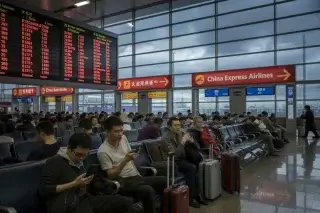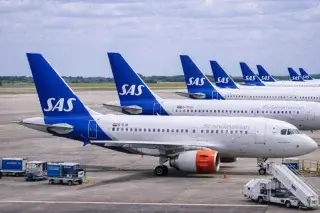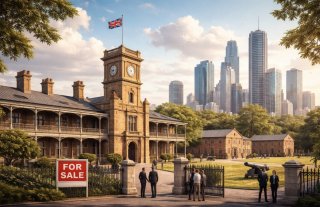Вusiness / Real Estate / Investments / Analytics / Research / Ratings / United Arab Emirates / United Kingdom / Switzerland / Japan / Thailand / Netherlands / Denmark / France / USA / Germany 15.11.2025
Where the Wealthy Live Comfortably: The Latest Ranking of Cities and Countries

Dollar millionaires distribute their business interests, families and assets across several countries. Choosing a location is becoming more complex: not only business opportunities matter, but also urban quality, safety, educational infrastructure and long-term asset management systems. Analysts at Savills note in the Spotlight on Wealth Trends report that the combination of these factors shapes the destinations that attract globally mobile wealth holders.
After the downturn of 2022, global wealth has recovered, especially in the Asia-Pacific region. In 2024, more than 680,000 new dollar millionaires appeared worldwide — an increase of 1.2%. By 2029, their number may grow by another five million. Second homes are becoming part of daily life, providing access to schools, healthcare and business ecosystems across multiple jurisdictions.
Classic hubs — London, Monaco, Singapore, New York and Hong Kong — retain influence, but new destinations are strengthening their positions thanks to urban quality, tax incentives and international communities. Today’s wealthy residents seek not only financial advantages but also a predictable and comfortable environment.
Top 30 Savills HNWI Hotspot Index
The index includes thirty cities that excel simultaneously in business environment, family infrastructure, quality of life, safety and asset-holding mechanisms. It is essentially a map of places where it is easiest to combine work, children’s education, mobility and asset protection within one strategy.
Dubai, New York, Singapore, Hong Kong and Abu Dhabi lead the ranking. They are followed by Monaco, Los Angeles, Miami, Aspen and London — cities with strong social and cultural environments. Alpine destinations such as Zermatt, St. Moritz, Gstaad and Verbier also show stable demand, forming part of the year-round mobile lifestyle. Asian centres — Beijing, Shanghai, Tokyo, Bangkok and Shenzhen — strengthen their positions thanks to rising wealth and improving urban environments.

Business Hubs: New Magnets for Capital
A strong business environment requires economic resilience, innovation, digital infrastructure and transport connectivity — factors that ensure predictable capital management and the development of international projects. Among the strongest markets are Singapore, Hong Kong and Abu Dhabi, where mature corporate ecosystems and investor-friendly regimes are established.
London and New York maintain their status as global centres for professional services and international mobility. Demand is growing in Monaco, Aspen and Los Angeles, where financial infrastructure is combined with high urban quality and extensive aviation networks. Demand is shifting toward technology, digital products, fintech and ESG sectors. Against this backdrop, family offices in Singapore and Switzerland are expanding actively.
These trends are echoed by the IMD World Competitiveness Index: the top five include Hong Kong, Switzerland, the UAE, the Netherlands and Denmark. These jurisdictions combine innovation, stability and mature financial systems.

Lifestyle as a Key Factor
Wealthy clients value vibrant urban environments, personalised services, cultural events and the ability to maintain their lifestyle in any country. London leads the lifestyle ranking — a city with unparalleled density of luxury services, gastronomy and cultural venues. Other strong performers include New York, Tokyo, Hong Kong, Paris, Los Angeles and Singapore.

Demand grows due to the “cluster effect”: clients choose cities with familiar communities and well-developed infrastructure. Michelin’s restaurant distribution highlights gastronomic leaders: Tokyo, Paris and New York, followed by Hong Kong, London, Los Angeles, Singapore and Shanghai.
Private clubs that combine work, leisure and social connections are expanding, while wellness infrastructure strengthens the positions of Switzerland and California as centres of medical and longevity tourism. These shifts influence real estate preferences: high demand is seen for homes with gated territories, services and infrastructures comparable to luxury hotels.
Family Environment and Education
Key family-environment parameters include healthcare, safety, daily infrastructure and predictable residency rules. Dubai, Monaco, Hong Kong, Abu Dhabi and Singapore top the family index. Education is the core element of this model. International schools allow children to move between countries without losing academic continuity. The most in-demand schools offer IB, A-Levels and American curricula.
Dubai ranks first globally by number of international schools — 168 institutions. It is followed by Madrid (92), Hong Kong (83), Mumbai (75), Bangkok (64), Singapore (63), Tokyo (53), Paris (44) and London (49). The United Kingdom remains one of the leading education destinations. Private schools and the universities of Boston and Zurich, as well as research centers in Switzerland, also offer extensive opportunities for study.
Tax Incentives and Government Programs
Countries compete for international residents by offering tax incentives, fixed-rate regimes and simplified frameworks for investors. New York, London, Paris, Hong Kong, Monaco and Singapore remain key nodes due to their financial infrastructures and clear rules.
Switzerland benefits from cantonal tax agreements with personalised structures. Italy offers a fixed €100,000 annual tax for new residents. The UAE provides long-term residency programs suitable for families who combine life in Dubai with international activity.
Real Estate Preferences
Real estate is increasingly used as a part of everyday life. Demand is rising for homes offering comfortable climates, access to nature and infrastructure for long-term living. Coastal and mountain destinations remain popular, but the importance of service quality, privacy and security continues to grow. Families prefer larger homes, flexible layouts and fully furnished, ready-to-move-in formats. Gated communities, autonomous services and separate work areas are also in demand.

In Singapore and Monaco, a shortage of large homes continues to drive prices. On secondary markets, ultra-luxury rentals are growing: owners prefer leasing properties during absence to offset maintenance costs. The prime segment remains one of the most resilient asset classes, combining living, leisure and mobility.
Inheritance and Wealth Structuring
Wealth transfer involves not only passing down assets but also protecting capital across generations. Trusts, family offices and structures like SPVs enable flexible ownership transfer without complex procedures. Preferred jurisdictions feature predictable legal environments and moderate tax burdens: the U.S., the UK, Switzerland, Singapore, Dubai and Monaco.
The number of family offices is rising: from 6,130 in 2019 to a projected 8,000 in 2025, and potentially 10,700 by 2035. More than half of the largest offices are based in the U.S., followed by the UK, China, Singapore, Germany and Australia.
Outlook
Global wealth is shifting toward dynamic, technology-oriented cities with resilient economies and advanced infrastructure. New growth points — Stockholm and Bangalore — expand their wealthy populations and build strong startup ecosystems. Georgia is also gaining prominence with one of the world’s most flexible tax systems, a rapidly growing luxury-hotel segment and rising property returns: branded assets can reach 19%. Simple market-entry rules and no restrictions for foreigners strengthen the country’s investment appeal.
Capital is spreading more widely, forming a multipolar landscape. Strong positions will belong to markets that combine a robust business environment, family comfort, a rich lifestyle sector and stable wealth-management mechanisms. Security also plays a growing role: the complexity of digital risks increases demand for destinations that offer privacy and multilayered protection.








